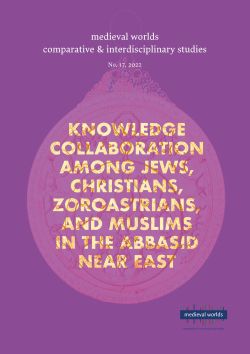Kayla Dang
S. 97 - 119
doi:
10.1553/medievalworlds_no17_2022s97
Verlag der Österreichischen Akademie der Wissenschaften
doi:
10.1553/medievalworlds_no17_2022s97
Abstract:
This article uses Arabic sources to examine the Islamic-era mowbed (Zoroastrian chief priest) in Abbasid society, in what I argue is the conscious continuation of the mowbed’s pre-Islamic role as judge, scholar, sage, and advisor to kings. Moreover, I argue that the mowbed used his status to promote the standing of the Zoroastrian community, as well as to assert the authority of the priesthood within that community – an authority which was negotiated under Muslim rule and through Islamic and particularly Shiʿi figures, above all ʿAlī b. Abī Ṭālib (d. 661 CE). Muslims were already debating the status of Zoroastrians, or Magians, as part of the ahl al-dhimma – with Shiʿi strands of tradition supporting more favorable views of the Magians. We should understand mowbeds as part of this dialectic, seeking the favor of caliphs, amirs, and sometimes rival sectarian leaders. As well as providing a survey of Arabic references to mowbeds in the Islamic period, this article will study two relevant Arabic texts: the first is a previously untranslated risāla composed in 986 on behalf of the Buyid amir Ṣamṣām al-Dawla by Abū Isḥāq Ibrāhīm al-Ṣābi ̉ (d. 994), in which Magians, and specifically »the sons of Ādhurbādh b. Mārsfand«, claim to have a letter of protection from ʿAlī b. Abī Ṭālib which grants them an exemption from paying the jizya; the second is a passage in al-Bīrūnī’s (d. 1048) al-Āthār al-bāqiya, which also asserts that the Zoroastrian priesthood was descended from Ādhurbādh b. Mārsfand – and moreover that access to knowledge of the Avesta was certified through written documents.
Zoroastrians, priesthood, authority, mowbed, dhimma, ʿAlī b. Abī Ṭālib, Buyids, Ṣamṣām al-Dawla, Shiʿism
Published Online:
2022/11/30 07:04:46
Object Identifier:
0xc1aa5576 0x003dd9b5
Rights:https://creativecommons.org/licenses/by-nc-nd/4.0/
medieval worlds provides a forum for comparative, interdisciplinary and transcultural studies of the Middle Ages. Its aim is to overcome disciplinary boundaries, regional limits and national research traditions in Medieval Studies, to open up new spaces for discussion, and to help developing global perspectives. We focus on the period from c. 400 to 1500 CE but do not stick to rigid periodization.
medieval worlds is open to submissions of broadly comparative studies and matters of global interest, whether in single articles, companion papers, smaller clusters, or special issues on a subject of global/comparative history. We particularly invite studies of wide-ranging connectivity or comparison between different world regions.
Apart from research articles, medieval worlds publishes ongoing debates and project and conference reports on comparative medieval research.
Editorial
Ingrid Hartl and Walter Pohl
»The sun was darkened for seventeen days« (AD 797).
An Interdisciplinary Exploration of Celestial Phenomena between Byzantium, Charlemagne, and a Volcanic Eruption
Johannes Preiser-Kapeller and Ewald Kislinger
Knowledge Collaboration among Jews, Christians, Zoroastrians, and Muslims in the Abbasid Near East
Guest editor: Nathan Gibson
Knowledge Collaboration among Jews, Christians, Zoroastrians, and Muslims in the Abbasid Near East: Introduction
Nathan P. Gibson
Why Muslims Shouldn’t Practice Medicine. The Autobiographical Account of a Frustrated Physician, Ibrahīm al-Qalyūbī (fl. second half 7th/13th)
Ignacio Sánchez
Alī and “Sons of Ādurbādh”: Zoroastrians Priests in the Early Islamic Era
Kayla Dang
On Attributes and Hypostases: Muslim Theology in the Interreligious Writings of Patriarch Timothy I (d. 823)
Joachim Jakob
For the Care of Body and Soul: The Greek Bible and an Arab-Islamic Botanical Text in a 10th-Century Palimpsest Fragment
Matteo Pimpinelli
Interreligious Scholarly Collaboration in Ibn al-Nadīm’s Fihrist
Rémy Gareil
Project Reports
Indexing A Shared Knowledge Culture from Many Perspectives: The Historical Index of the Medieval Middle East (HIMME) as a Tool for Researching Diversity
Thomas A. Carlson and Jessica S. Mutter
Embedding Conquest: Naturalizing Muslim Rule in the Early Islamic Empire (Project Report)
Cecilia Palombo




 Home
Home
 Print
Print
 References
References
 Share
Share
